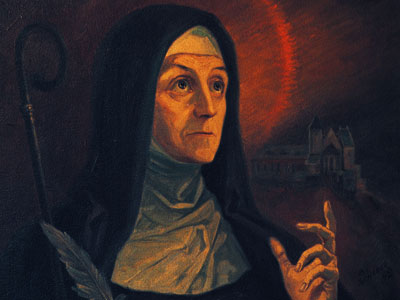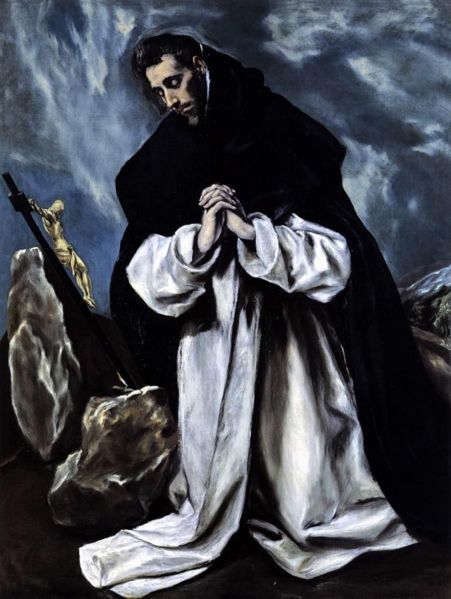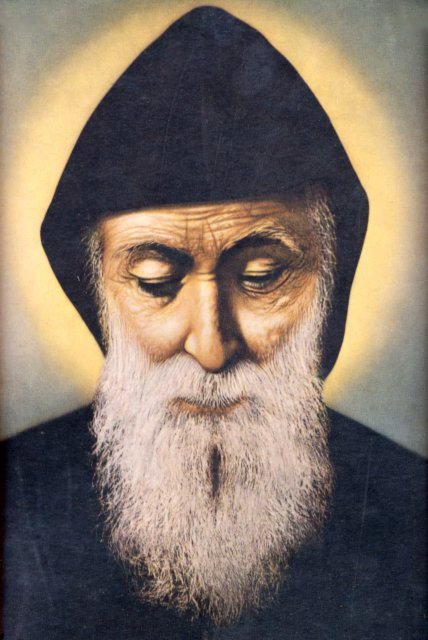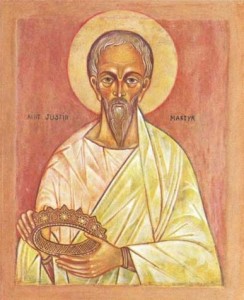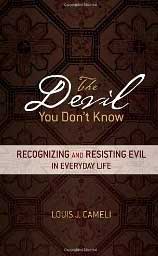What a delight to speak once again to Fr. Joseph Fessio, this time about “The Transforming Power of Faith” by Pope Benedict 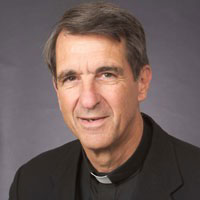 XVI. Ignatius Press has once again brought to us a wonderful compilation of the final sixteen talks given at his weekly audience from October 2012 to the end of his papacy in February 2013. These talks explore how and why faith is relevant in the contemporary world.
XVI. Ignatius Press has once again brought to us a wonderful compilation of the final sixteen talks given at his weekly audience from October 2012 to the end of his papacy in February 2013. These talks explore how and why faith is relevant in the contemporary world.
In this discussion, Fr. Fessio offers his insights on the pontificate of Pope Francis, a brother in the Jesuit order. He also addresses an issue concerning the work of Fr. Hans Urs von Balthasar as found in his book “Dare We Hope That All May Be Saved”, which has, in some cases recently, been mistakenly understood and represented to others. He breaks open a bit Fr. von Balthasar’s teachings on hell, the mercy of God, and the proper understanding of “hope”. Another engaging conversation with the ever fascinating Fr. Fessio.
[powerpress]
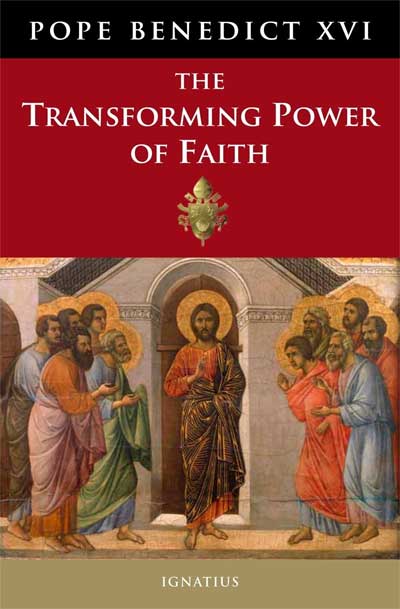 You can find the book here
You can find the book here
From the book description:
“Having faith in the Lord is not something that involves solely our intelligence, the area of intellectual knowledge; rather, it is a change that involves our life, our whole self: feelings, heart, intelligence, will, corporeity, emotions, and human relationships. With faith everything truly changes.”
So Pope Benedict XVI introduced his catecheses for the Year of Faith, a series of sixteen talks given at his weekly audience from October 2012 to the end of his papacy in February 2013. These talks explore how and why faith is relevant in the contemporary world. How can we come to certainty about things that cannot be calculated or scientifically confirmed? What does God’s revelation mean for our daily lives? How can the hunger of the human heart be fulfilled? Offering the guidance of biblical exegesis, pastoral exhortation, and brotherly encouragement, Pope Benedict seeks to answer these questions and many others.
Tags: catholic, catholic podcast, catholic prayer
This entry was posted on Thursday, October 31st, 2013 at 4:17 pm
You can follow any responses to this entry through the RSS 2.0 feed.
“Good Pope, Bad Pope: Their Lives, Our Lesson” is another terrific book by the prolific Mike Aquilina.  This is a much needed 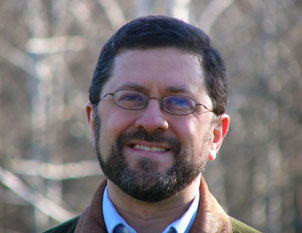 resource for all Catholics.  Those of us who love and appreciate the gift of the Papacy in the life of the Church, if we are honest with ourselves, cringe a bit inside when the facts of history uncover those Popes who were…well…bad.  Leave it to Mike Aquilina to guide us through those notorious lives and times, while helping  us to see the lesson we can learn from those particular experiences.  Mike also lifts up those outstanding men who were more than just “good” Popes (which the overwhelming majority were), but reminds of  popes like Bl. John Paul II,  who could be called “great”.  Be not afraid of history, especially when its in the hands of Mike Aquilina.
resource for all Catholics.  Those of us who love and appreciate the gift of the Papacy in the life of the Church, if we are honest with ourselves, cringe a bit inside when the facts of history uncover those Popes who were…well…bad.  Leave it to Mike Aquilina to guide us through those notorious lives and times, while helping  us to see the lesson we can learn from those particular experiences.  Mike also lifts up those outstanding men who were more than just “good” Popes (which the overwhelming majority were), but reminds of  popes like Bl. John Paul II,  who could be called “great”.  Be not afraid of history, especially when its in the hands of Mike Aquilina.
[powerpress]
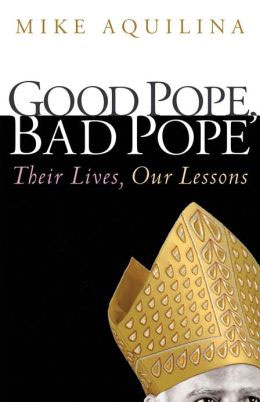 You can find the book here
You can find the book here
From the description:
Every pope is by definition a remarkable man. But the popes whose stories you’ll read here were chosen because they reveal how the papacy developed. They show us how Christ kept his promise to his bride, the Church, not only in her health but also in her sickness. The great popes advanced our understanding of Christian doctrine. But even more remarkable, the worst popes could do nothing to damage the teaching of the Church.
That’s why, even in its darkest moments, the story of the papacy is a story of triumph. And that’s why it’s worth knowing these twelve popes.
Tags: catholic, catholic podcast, catholic prayer
This entry was posted on Wednesday, October 9th, 2013 at 9:26 am
You can follow any responses to this entry through the RSS 2.0 feed.
What an absolute to delight to speak with actress Alissa Jung about her performance in the breathtaking film “Mary of Nazareth”.   The German actress is luminous in her portrayal  of the Blessed Virgin Mary. Alissa shares the challenges and the joys she encountered in taking on this challenging role.  She also shares with us the work of her very special non-profit organization “Pens, Paper, Peace” which funds much needed schools for the children of Haiti.
 The German actress is luminous in her portrayal  of the Blessed Virgin Mary. Alissa shares the challenges and the joys she encountered in taking on this challenging role.  She also shares with us the work of her very special non-profit organization “Pens, Paper, Peace” which funds much needed schools for the children of Haiti.
[powerpress]
“Stunning in its beauty, breathtaking in its scope! Mary of Nazareth is simply a joy for the heart. This is the film we have been waiting for. This is the Blessed Mother we have come to know in our hearts and the depiction that we want not only our families and friends to see, but all the world as well. A joy-filled expression of faith, hope and love. The Mary of this film is no ‘pouty teenager’ or ‘hapless victim’ as she is too often portrayed in film today. No, this is our Mary, who says with trust a glorious ‘Fiat’ to the will of the Father. This work, with its gorgeous cinematic qualities and touching performances, is worthy to honor the one who would say, “I am the Handmaid of the Lordâ€. Kris McGregor
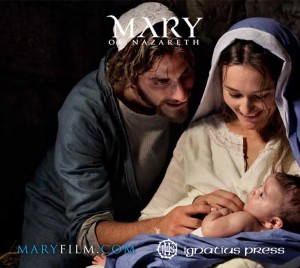 To learn showtimes in your town or how you can bring the movie to your area visit www.maryfilm.com
To learn showtimes in your town or how you can bring the movie to your area visit www.maryfilm.com
The most stunning portrayal of the Virgin Mary on film. It will make you want to love her more than ever. An absolute masterpiece! Yes, my friends, I can assure you that we finally have a movie that gets Mary totally right! Trust me, I am super hard to please when it comes to any portrayal of Mary in film, but this one nailed it entirely! Fr. Donald Calloway, MIC
Tags: catholic, catholic podcast, catholic prayer
This entry was posted on Wednesday, October 2nd, 2013 at 1:21 am
You can follow any responses to this entry through the RSS 2.0 feed.
Episode 21 Beginning to Pray: Â St. Hildegard von Bingen and “The Iron Mountain”
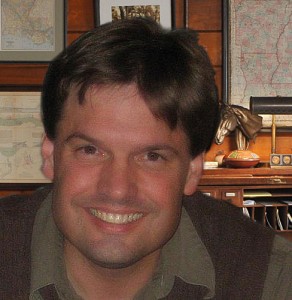
[powerpress]
From Dr. Lilles’ “Beginning to Pray” blog site:
September 17 is the feast of St. Hiildegard of Bingen. She lived from 1098-1179. A Benedictine Nun, at the age of 42, she was given visions and commanded rise up and cry out what she saw. She obeyed and produced a set of writings known today as Scivias.
Her first vision is of a hidden mountain, the mountain of God’s throne, an iron mountain of immutable justice hidden in divine glory. A purifying Fear of the Lord contemplates this splendor. Not the kind of fear that pulls away to protect itself. Rather the kind of fear that is vigilant and sees the truth. Eyes which gaze with this holy fear can never be satisfied with the merely mediocre. They guard against every form of compromise. The glory they behold demands absolute allegiance, complete surrender, and total humility.
In this description, is St. Hildegard suggesting a way by which we might enjoy the same vision she has shared in? This is no exercise in esoteric navel gazing. Her vision demands a journey beyond our own self-pre-occupation and into real friendship with God, a friendship protected by the strength of divine justice. She sees the truth in a way that demands an ongoing conversion of life.
She is well-formed in St. Benedict’s conversatio morum. The mountain she sees is not a truth we scrutinize so much as the truth that scrutinizes us: a scrutinizing of all our thoughts and actions in light of the Gospel. The truth she beholds demands repentance from the lack of justice we allow ourselves to slip into. The iron mountain she contemplates renders futile every effort to conform the Gospel to our own ways and invites us to be transformed by its just demands.
Today, where all kinds of cruelty are so easily excused and any form of self-indulgence so readily lifted up to the level of a fundamental human right, we need to rediscover the shadow of the iron mountain from which St. Hildegard cries out to us. Only under the glory of this mountain can we find the peace that the Lord has come to give. Only in the blinding light into which Holy Fear gazes can we find the humility to love one another the way Christ has loved us.
Dr. Anthony Lilles is a Catholic husband and father of three teaching Spiritual Theology at St. John Vianney Theological Seminary. He  teaches spiritual theology and spiritual direction to transitional deacons, and the spiritual classics to the men who enter the Spirituality Year, a year of prayer in preparation for seminary formation.  He is the author of the “Beginning to Pray”  catholic blog spot.
For other episodes in the series visit the Discerning Hearts page for Dr. Anthony Lilles
The music that is used comes from 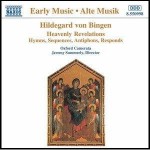
This the text we use  for our readings comes from:
Tags: Anthony Lilles, catholic, catholic podcast, catholic prayer, cathollc spirituality, father, mystic, mystic of the Church, spiritual direction, Spirituality Year, st hildegard of bingen
This entry was posted on Tuesday, September 17th, 2013 at 4:16 am
You can follow any responses to this entry through the RSS 2.0 feed.
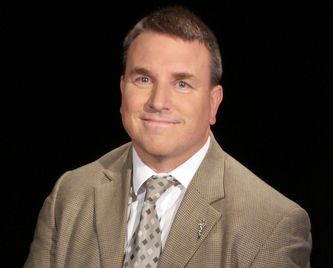 Episode 15 – Great Works in Western Literature with Joseph Pearce – St. Augustine
Episode 15 – Great Works in Western Literature with Joseph Pearce – St. Augustine
[powerpress]
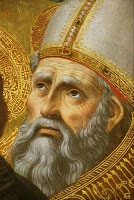 The Confessions of Saint Augustine is considered one of the greatest Christian classics of all time. It is an extended poetic, passionate, intimate prayer that Augustine wrote as an autobiography sometime after his conversion, to confess his sins and proclaim God’s goodness. Just as his first hearers were captivated by his powerful conversion story, so also have many millions been over the following sixteen centuries. His experience of God speaks to us across time with little need of transpositions.
The Confessions of Saint Augustine is considered one of the greatest Christian classics of all time. It is an extended poetic, passionate, intimate prayer that Augustine wrote as an autobiography sometime after his conversion, to confess his sins and proclaim God’s goodness. Just as his first hearers were captivated by his powerful conversion story, so also have many millions been over the following sixteen centuries. His experience of God speaks to us across time with little need of transpositions.
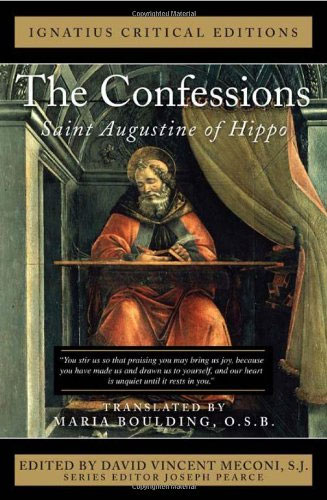 Based on the Ignatius Critical Edition, this series examines, from the Judeo-Christian perspective, the life, the times, and influence of authors of great works in literature .
Based on the Ignatius Critical Edition, this series examines, from the Judeo-Christian perspective, the life, the times, and influence of authors of great works in literature .
Joseph Pearce is currently the Writer-in-Residence and Visiting Fellow at Thomas More College of Liberal Arts in Merrimack, New Hampshire. He is also Visiting Scholar at Mount Royal Academy in Sunapee, New Hampshire. He is also Visiting Scholar at Mount Royal Academy in Sunapee, New Hampshire. He is  co-editor of the Saint Austin Review (or StAR), an international review of Christian culture, literature, and ideas published in England (Family Publications) and the United States (Sapientia Press). He is also the author of many books, including literary biographies of Solzhenitsyn, J. R. R. Tolkien, C. S. Lewis, G. K. Chesterton, and Oscar Wilde.
To learn more about the authors and titles available in the Ignatius Critical Editions
Tags: catholic, catholic podcast, catholic prayer, cathollc spirituality, conversion, joseph pearce, New Hampshire, prayer
This entry was posted on Tuesday, September 3rd, 2013 at 8:28 am
You can follow any responses to this entry through the RSS 2.0 feed.
St. Hildegard and  “Conversatio Morum – the Conversion of Life” – The Mystery of Faith in the Wisdom of the Saints

[powerpress]
Benedictine Spirituality and Lectio Divina…a “way of being”. Â In part one of this particular teaching, Dr. Lilles discusses the life St. Hildegard of Bingen and her expression of Benedictine teaching.
Dr.Anthony Lilles is a Catholic husband and father of three teaching Spiritual Theology at St. John Vianney Theological Seminary. He  teaches spiritual theology and spiritual direction to transitional deacons, and the spiritual classics to the men who enter the Spirituality Year, a year of prayer in preparation for seminary formation.  He is the author of the “Beginning to Pray”  Catholic blog spot.
For other episodes in the series visit the Discerning Hearts page for Dr. Anthony Lilles
Tags: Anthony Lilles, catholic, catholic podcast, catholic prayer, cathollc spirituality, Discerning Hearts, prayer, Spirituality Year, st. hildegard
This entry was posted on Wednesday, August 28th, 2013 at 9:43 pm
You can follow any responses to this entry through the RSS 2.0 feed.
[powerpress]
O Holy Priest of God
and glorious Patriarch, St. Dominic,
thou who wast the friend,
the well-beloved son
and confidant of the Queen of Heaven,
and didst work so many miracles
by the power of the Holy Rosary,
have regard for my intercessions.
On earth you opened your heart
to the miseries of your fellow man,
and your hands were strong to help them;
now in heaven your charity has not grown less
nor has your power waned.
Pray for me to the Mother of the Rosary
and to her Divine Son,
for I have great confidence
that through your assistance
I shall obtain the favor I so much desire:
(mention your intentions).
Amen.
Tags: catholic, catholic podcast, catholic prayer, cathollc spirituality
This entry was posted on Thursday, August 8th, 2013 at 12:09 am
You can follow any responses to this entry through the RSS 2.0 feed.
The Chaplet of St. Charbel – for text click here
[powerpress]
Countless…countless…miracles are attributed to this rmarkable saint of the Middle East…St. Charbel. I didn’t know of him until a wonderful member of the Fransican Friars of the Renewal, Br. Martin Ervin introduced us to this extraordinary man.
“In the 19th century Father Charbel Makhlouf-along with a few other saintly men-had tried to live again the austere life of the desert fathers of the early church. He belonged to the Christian body known as Maronites, a group which traces its name back to Saint Maro, a friend of Saint John Chrysostom. This group of Christians, most of whom still live in Lebanon, have been united to the Western Church since the 12th century, thus bringing into Western Christendom traditions of great value that might readily have been forgotten. These traditions are ones of enormous self- discipline, and few have exemplified them better than Charbel Makhlouf.
After 23 years of this ascetic life, Charbel had a paralyzing stroke just before the consecration while celebrating the Eucharist in his chapel, and died eight days later on Christmas Eve. After his death many favors and miracles were claimed through his intercession in heaven. Today his tomb is visited by large numbers of people, not only Lebanese Maronites and not only Christians” – Mansour Mouasher
In 1950, Father George Webby, a Maronite priest from Scranton, visited Lebanon, took a photo of monks outside the wall of the 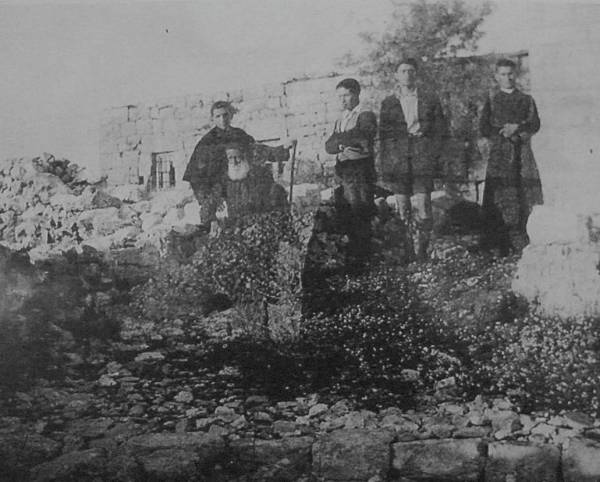 monastery in which St. Charbel had lived and upon development of the picture saw that St. Charbel miraculously appeared with the monks, according to information provided by St. Anthony’s Church.
monastery in which St. Charbel had lived and upon development of the picture saw that St. Charbel miraculously appeared with the monks, according to information provided by St. Anthony’s Church.
Art work for holy pictures of this saint is now taken from this photo. Can you see him? (Hint: smack dab in the middle) click on the picture and then zoom in….
St. Charbel is listed among The Incorruptibles, saints whose bodies were found intact years after burial. His body kept pouring oil and blood until the year before his canonization in 1977.
Here is a neat video entitled “The Saint Charble Song” …it’s special…
Tags: catholic, catholic podcast, catholic prayer, cathollc spirituality, Charbel Makhlouf, desert fathers, intercession, Lebanon, maronites, miracles, miraculous healings, Saint Maro, St. Charbel, st. sharbel
This entry was posted on Wednesday, July 24th, 2013 at 4:19 am
You can follow any responses to this entry through the RSS 2.0 feed.
Episode 24 Beginning to Pray Special: Â “Gazing on the Face of Christ with the Saints”

[powerpress]
Dr. Lilles’ continues his  Day of Recollection offered in April 2013.
Here is the continuation of the first presentation which focuses on the Mystical Saints who can help us to gaze on the Face of Christ:
Anthony will introduce the saints who will guide us through our reflections: Â St. Teresa of Avila, St. John of the Cross, St. Therese of Lisieux, Blessed Elisabeth of the Trinity and Blessed John Paul II. Â He also answers questions about methods of prayers, teaching others to pray, and how can one help restore the sense of the sacred to the mass and Eucharistic adoration.

St. Teresa of Avila
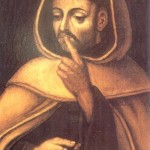
St. John o the Cross

St. Therese of Lisieux

Blessed Elizabeth of the Trinity
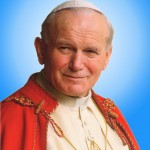
St. John Paul II
Dr.Anthony Lilles is a Catholic husband and father of three teaching Spiritual Theology at St. John Vianney Theological Seminary. He  teaches spiritual theology and spiritual direction to transitional deacons, and the spiritual classics to the men who enter the Spirituality Year, a year of prayer in preparation for seminary formation.  He is the author of the “Beginning to Pray”  catholic blog spot.
For other episodes in the series visit the Discerning Hearts page for Dr. Anthony Lilles
Tags: Anthony Lilles, catholic, catholic podcast, catholic prayer, cathollc spirituality, Discerning Hearts, father, prayer, spiritual direction, Spirituality Year
This entry was posted on Tuesday, June 25th, 2013 at 8:45 am
You can follow any responses to this entry through the RSS 2.0 feed.
“Conscience and It’s Enemies: Confronting the Dogmas of Liberal Secularism” is one of the best articulations of today’s battle over religious liberty and 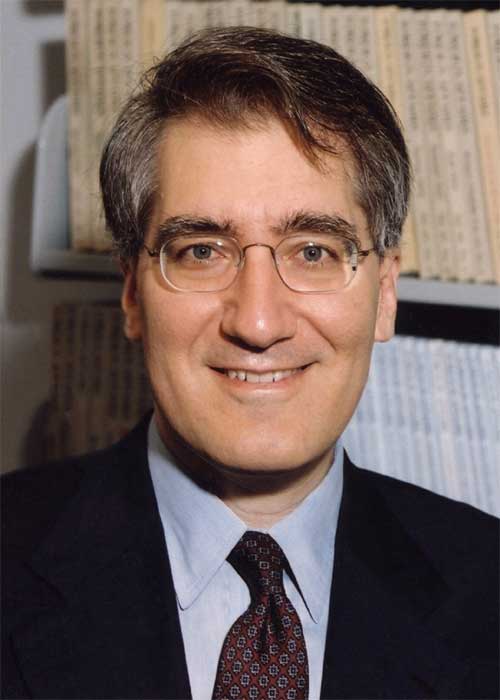 traditional morality.  Dr. Robert George’s clarity and insight is indispensable for  understanding where we have been, where we are going, and what paths we could be traveling down if we fail to action on the leading morality challenges facing as individuals and citizens.  Pass by this book and it’s message at your own risk.
traditional morality.  Dr. Robert George’s clarity and insight is indispensable for  understanding where we have been, where we are going, and what paths we could be traveling down if we fail to action on the leading morality challenges facing as individuals and citizens.  Pass by this book and it’s message at your own risk.
As the book description states: “In defending what James Madison called the “sacred rights of conscienceâ€â€”rights for which government shows frightening contempt—George grapples with today’s most controversial issues: abortion and infanticide, same-sex marriage, genetic manipulation, euthanasia and assisted suicide, religion in politics, judicial activism, and more. His brilliantly argued essays rely not on theological claims or religious authority but on established scientific facts and a philosophical tradition that extends back to Plato and Aristotle.”
[powerpress]
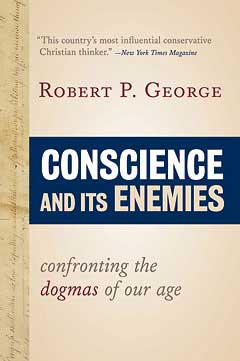 You can find it here
You can find it here
“One of the most incisive legal and moral thinkers working today.†—First Things
“One of contemporary conservatism’s intellectual pinups.†—George F. Will
“Professor George has helped strengthen our nation’s system of ordered liberty by exploring enduring questions of American constitutional law and Western political theory.†—President George W. Bush, in awarding the Presidential Citizens Medal
Tags: catholic, catholic podcast, catholic prayer
This entry was posted on Monday, June 24th, 2013 at 7:38 am
You can follow any responses to this entry through the RSS 2.0 feed.
Join us a we discuss the life St. Justin Martyr with the wonderful Mike Aquilina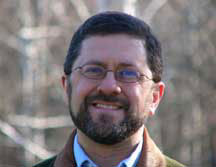
[powerpress]
You can also read the following from Vatican.va
BENEDICT XVI
GENERAL AUDIENCE
St Peter’s Square
Wednesday, 21 March 2007
St Justin, Philosopher and Martyr (c. 100-165)
Dear Brothers and Sisters,
In these Catecheses, we are reflecting on the great figures of the early Church. Today, we will talk about St Justin, Philosopher and Martyr, the most important of the second-century apologist Fathers.
The word “apologist” designates those ancient Christian writers who set out to defend the new religion from the weighty accusations of both pagans and Jews, and to spread the Christian doctrine in terms suited to the culture of their time.
Thus, the apologists had a twofold concern: that most properly called “apologetic”, to defend the newborn Christianity (apologhÃa in Greek means, precisely, “defence”), and the pro-positive, “missionary” concern, to explain the content of the faith in a language and on a wavelength comprehensible to their contemporaries.
Justin was born in about the year 100 near ancient Shechem, Samaria, in the Holy Land; he spent a long time seeking the truth, movi
Finally, as he himself recounts in the first chapters of his Dialogue with Tryphon, a mysterious figure, an old man he met on the seashore, initially leads him into a crisis by showing him that it is impossible for the human being to satisfy his aspiration to the divine solely with his own forces. He then pointed out to him the ancient prophets as the people to turn to in order to find the way to God and “true philosophy”.ng through the various schools of the Greek philosophical tradition.In taking his leave, the old man urged him to pray that the gates of light would be opened to him.
The story foretells the crucial episode in Justin’s life: at the end of a long philosophical journey, a quest for the truth, he arrived at the Christian faith. He founded a school in Rome where, free of charge, he initiated students into the new religion, considered as the true philosophy. Indeed, in it he had found the truth, hence, the art of living virtuously.For this reason he was reported and beheaded in about 165 during the reign of Marcus Aurelius, the philosopher-emperor to whom Justin had actually addressed one of his Apologia.
These - the two Apologies and the Dialogue with the Hebrew, Tryphon - are his only surviving works. In them, Justin intends above all to illustrate the divine project of creation and salvation, which is fulfilled in Jesus Christ, the Logos, that is, the eternal Word, eternal Reason, creative Reason. (more…)
Tags: catholic, catholic podcast, catholic prayer
This entry was posted on Saturday, June 1st, 2013 at 10:01 am
You can follow any responses to this entry through the RSS 2.0 feed.
What a delight to be joined once again by Dr. Scott Hahn to share in a conversation about the delicious meal contained in our Sacred 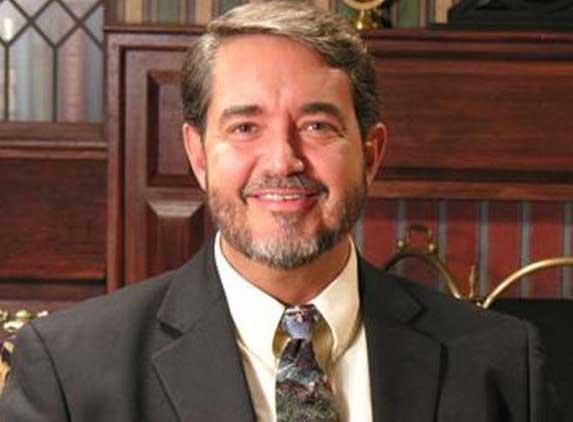 Scriptures. In “Consuming the Word: The New Testament and the Eucharist in the Early Church”, Dr. Hahn helps us to make an important paradigm shift in our contemplation of the Word of God. Not just words transmitted in the pages of a book,  The Word  is meant to be seen as an action of Love. That action is best related in the gift of the Eucharist. Blessed John Paul II asked Catholics to “base the New Evangelization on the Eucharist”. As Catholics, we know Christ as the Eucharistic Lord and that is how the early Church proclaimed him. Dr Hahn reminds us that in the early Church there was no book that could be called the “New Testament”. That phrase was used to describe the Mass. Dr. Hahn will also go on to  warn us of the dangers found in  “intellectualizing the Bible, by recalling for us what St. Paul has said, “Knowledge puffs up, love builds up… It’s not love instead of knowledge, but knowledge ordered to love, because you can’t love what you do not know, but you can know and not love”. What an outstanding book, yet again, brought to us by Dr.Scott Hahn!
Scriptures. In “Consuming the Word: The New Testament and the Eucharist in the Early Church”, Dr. Hahn helps us to make an important paradigm shift in our contemplation of the Word of God. Not just words transmitted in the pages of a book,  The Word  is meant to be seen as an action of Love. That action is best related in the gift of the Eucharist. Blessed John Paul II asked Catholics to “base the New Evangelization on the Eucharist”. As Catholics, we know Christ as the Eucharistic Lord and that is how the early Church proclaimed him. Dr Hahn reminds us that in the early Church there was no book that could be called the “New Testament”. That phrase was used to describe the Mass. Dr. Hahn will also go on to  warn us of the dangers found in  “intellectualizing the Bible, by recalling for us what St. Paul has said, “Knowledge puffs up, love builds up… It’s not love instead of knowledge, but knowledge ordered to love, because you can’t love what you do not know, but you can know and not love”. What an outstanding book, yet again, brought to us by Dr.Scott Hahn!
[powerpress]
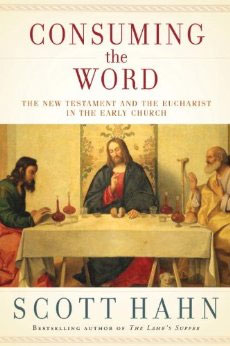 You can find the book here
You can find the book here
“Scott Hahn has a well-earned reputation as a vivid guide to the Word of God. That skill is elegantly on display here. Consuming the Word is erudite and accessible, rich in content and lucid in style — an engaging read for anyone who seeks to better understand the profound interplay of Scripture, Liturgy and the role of the Church in Christian life.” Most Reverend Charles J. Chaput, O.F.M. Cap., Archbishop of Philadelphia
“With words that are both accessible and erudite, Dr. Scott Hahn introduces us anew to the Eternal Word of the New Testament, a word that is given to us, not simply as a text in a book, but as the living and real presence of the Lord Jesus himself.” Very Reverend Robert Barron, author of Catholicism: A Journey to the Heart of the Faith
Tags: catholic, catholic podcast, catholic prayer
This entry was posted on Saturday, June 1st, 2013 at 8:07 am
You can follow any responses to this entry through the RSS 2.0 feed.
Efficacious Novena to the Sacred Heart of Jesus Â
[powerpress]
I. O my Jesus, you have said: “Truly I say to you, ask and you will receive, seek and you will find, knock and it will be opened to you.” Behold I knock, I seek and ask for the grace of…… (here name your request)
Our Father….Hail Mary….Glory Be to the Father….Sacred Heart of Jesus, I place all my trust in you.
II. O my Jesus, you have said: “Truly I say to you, if you ask anything of the Father in my name, he will give it to you.” Behold, in your name, I ask the Father for the grace of…….(here name your request) Our Father…Hail Mary….Glory Be To the Father….Sacred Heart of Jesus, I place all my trust in you.
III. O my Jesus, you have said: “Truly I say to you, heaven and earth will pass away but my words will not pass away.” Encouraged by your infallible words I now ask for the grace of…..(here name your request) Our Father….Hail Mary….Glory Be to the Father…Sacred Heart of Jesus, I place all my trust in you.
O Sacred Heart of Jesus, for whom it is impossible not to have compassion on the afflicted, have pity on us miserable sinners and grant us the grace which we ask of you, through the Sorrowful and Immaculate Heart of Mary, your tender Mother and ours.
Say the Hail, Holy Queen and add: St. Joseph, foster father of Jesus, pray for us.
— St. Margaret Mary Alacoque
(This is the prayer offered daily by St. Padre Pio for his spiritual children’s intentions)
This prayer is offered in audio form by Msgr. John Esseff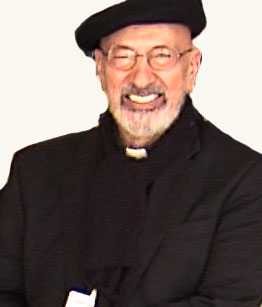
Tags: audio, catholic, catholic podcast, catholic prayer, cathollc spirituality, hail mary, Heart of Jesus, Jesus, mp3, Novena to the Sacred Heart of Jesus, O my Jesus
This entry was posted on Friday, May 31st, 2013 at 12:39 am
You can follow any responses to this entry through the RSS 2.0 feed.
“The Will of God: Finding and Fulfilling Your Purpose in Life” is a great book which uses the great Psalm 119 to help us in the 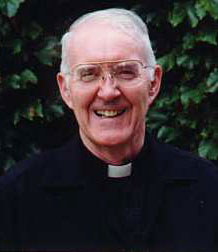 area of discernment.  Taking a lifetime of steeped  in prayer and sound theology, Fr. Baker gives us a unique and penetrating resource to aid in our growth in the areas of contemplation and discernment. Father Baker was the editor of Homiletic & Pastoral Review for more than 40 years, and currently serves as Editor Emeritus of the online edition.  He was a joy to talk with and to learn from….not to be missed for the discerning heart!
area of discernment.  Taking a lifetime of steeped  in prayer and sound theology, Fr. Baker gives us a unique and penetrating resource to aid in our growth in the areas of contemplation and discernment. Father Baker was the editor of Homiletic & Pastoral Review for more than 40 years, and currently serves as Editor Emeritus of the online edition.  He was a joy to talk with and to learn from….not to be missed for the discerning heart!
[powerpress]
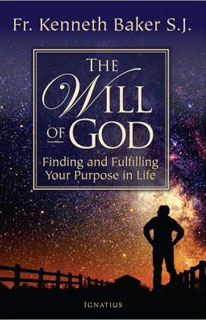 You can find the book here
You can find the book here
“Father Baker helps us to discover God’s will and, what is even more, important how to live God’s will! He uses the Holy Scriptures,the teaching of the Church and the saints to help us become holy and transformed into the saints that God created us to be. Read this book and discover what God wants you to do!” —Fr. Larry Richards, Author, Be a Man!
Tags: catholic, catholic podcast, catholic prayer
This entry was posted on Friday, May 24th, 2013 at 5:15 pm
You can follow any responses to this entry through the RSS 2.0 feed.
“The Devil You Don’t Know: Recognizing and Resisting Evil in Everyday Life” 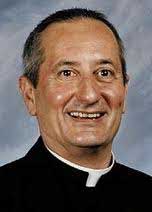 is not about some “sensationalistic” overview of the “creepy”, instead it is a solid resource for those seeking to vanquish the ordinary means in which evil disrupts and damages our spiritual lives.  Highly recommended, I’ve passed this book along to many.
is not about some “sensationalistic” overview of the “creepy”, instead it is a solid resource for those seeking to vanquish the ordinary means in which evil disrupts and damages our spiritual lives.  Highly recommended, I’ve passed this book along to many.
[powerpress]
You can find this book here
Publisher’s Weekly says it well:
In some ways, it’s easy to believe in a devil who makes heads spin round and enables people to levitate. Ubiquitous movies and books about possession and exorcism have trained spiritual seekers to identify evil by its expected Hollywood conventions. By contrast, Rev. Louis J. Cameli, nationally renowned pastoral leader and priest of the Archdiocese of Chicago, paints a challenging, unsettling portrait of the devil as a formidable adversary who works great harm, often in quiet, less-seen ways.
While remaining a fixture of popular culture, the devil has–until now–been largely ignored in contemporary spiritual writing. Cameli exposes the devil’s tactics of deception, division, diversion, and discouragement, in individuals and also in institutions. This thoroughly biblical, deft exploration considers the personal and social dimensions of sin, and offers both enlightenment and hope in the power of Christ at work to overcome evil.
Tags: catholic, catholic podcast, catholic prayer
This entry was posted on Friday, May 17th, 2013 at 7:19 am
You can follow any responses to this entry through the RSS 2.0 feed.

